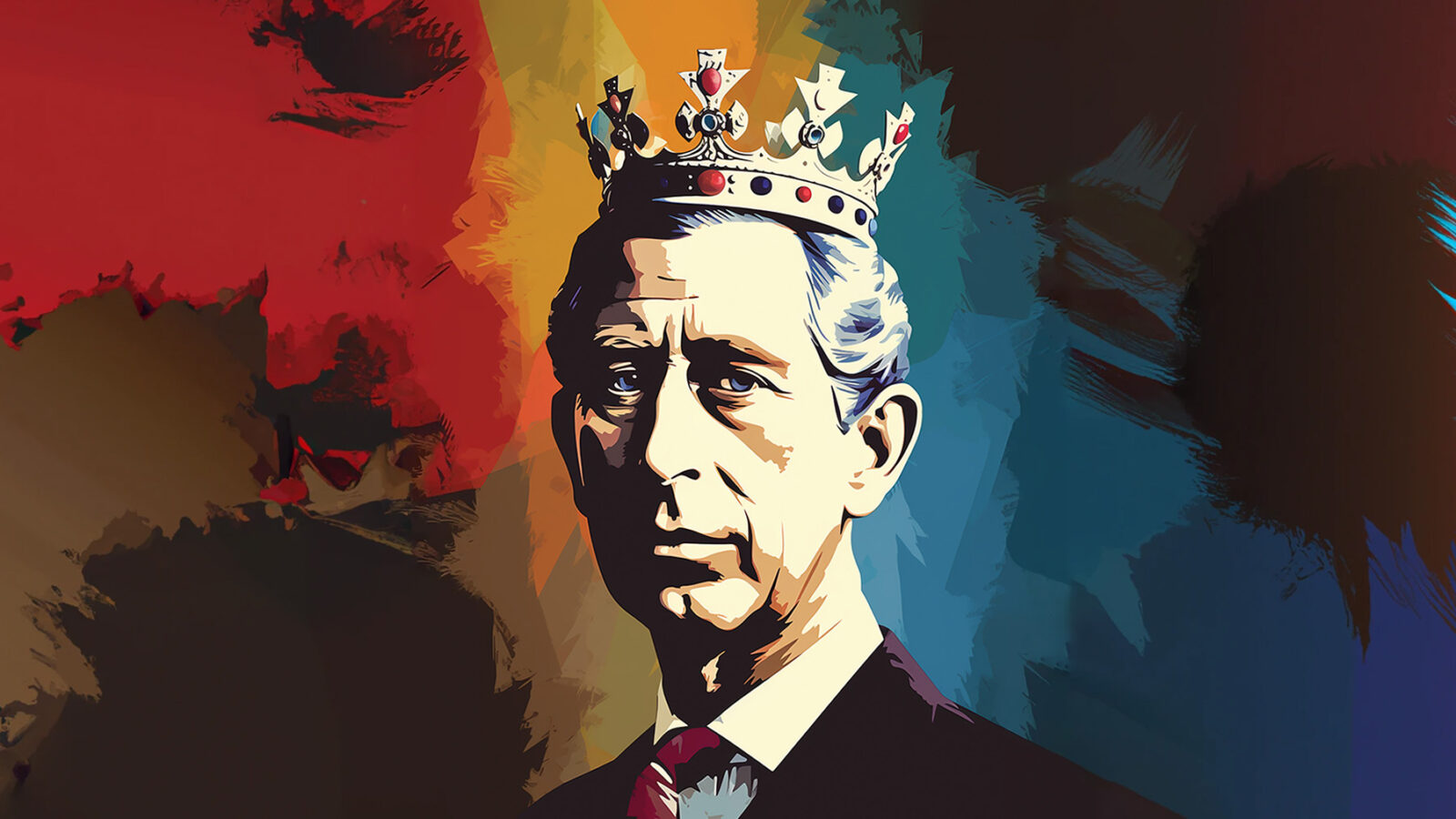On September 8, 2022 His Royal Highness Prince Charles Philip Arthur George, Prince of Wales, KG, KT, GCB, OM, AK, QSO, PC, ADC, Earl of Chester, Duke of Cornwall, Duke of Rothesay, Earl of Carrick, Baron of Renfrew, Lord of the Isles, and Prince and Great Steward of Scotland, became king of the United Kingdom of Great Britain and Northern Ireland. Of course, this ascension to the throne was overshadowed by a more widely publicised event: the death of his mother, Queen Elizabeth II. The ensuing period of mourning, followed by extended funerary proceedings, captured the attention of both Commonwealth nations and the rest of the world. In many ways, the death of the queen marked a transition period for many billions of people. Whether or not you are a subject of the British monarchy, for many of us Queen Elizabeth II was a symbol of stability, normalcy and steadfastness. Like a security blanket or a familiar song, regardless of the ever-changing tides of world events, one thing you could always count on was the queen. For most of us, she was the only British monarch we knew. She was queen long before I was born, as well as before the birth of both of my parents.
However, this article isn’t about Queen Elizabeth II—it’s about her son. He’s the first British monarch to be crowned in the 21st century as well as the first since 1953: 70 years if you’re counting. That’s more than 70 years of preparing for the job he’ll have until it’s his turn to be buried like his mother before him and his grandfather before her.
And this waiting period hasn’t been one of silent anticipation. The press, the public and the royals alike have all, at various times, voiced their ever-changing opinions on what is in store for us once he takes the throne, and indeed whether he should at all. Where his mother had the advantage of a relative lack of public scrutiny prior to her father George VI’s sudden death, the entire world has had the better part of a century to deliberate on the prospects of a King Charles III. To say the jury’s out would be the understatement of said century.
First, there’s his name. Perhaps unfortunate, and certainly not his fault, but there has been some distaste toward the name “Charles”, and for good reason. King Charles I’s reign (1625–1649) was marked by political turmoil. Ironically, much of this tension was fuelled by arguments over the place of the monarchy and exactly how much power it should wield. His inability to govern well led directly to the English Civil War, which resulted in his beheading at the order of Oliver Cromwell in 1649. His eldest surviving son, Charles II, spent most of his life in exile, not ascending to the throne until 1660. His reign saw the Great Plague ravage Europe, the Great Fire of London destroy much of his capital and finally the dissolution of Parliament until his death at the age of 54. Some historians suggest he may have inadvertently poisoned himself with mercury but the official cause of death remains unknown to this day.
But what has been scrutinised more than his name is the character of the man wielding it. The 74 years Charles has been in the public eye has allowed the public to form an opinion on him influenced by tabloids, leaks and correspondence between him and other members of the royal family. Journalist Sally Bedell Smith wrote about this in her 2017 biography Prince Charles: The Passions and Paradoxes of an Improbable Life. Having met the man several times in person, she on the one hand presents his public persona as warmer and more genuine than some tabloids would have you think, while on the other hand revealing the character flaws that create a series of ever-cascading contradictions. On the one hand, he is an avid environmentalist, deeply concerned about disappearing animal species and sustainable housing. On the other hand, he reportedly becomes irate when forced to fly first class (rather than private jet) and takes a leather toilet seat with him wherever he goes.
In his earlier years, he was also typecast as a typical “rich-kid playboy”. This image was fuelled, perhaps unfairly, by his great-uncle and confidante Lord Mountbatten, who encouraged him to “sow his wild oats” before settling down to an appropriate match. Charles was never comfortable with this identity and seemed passionately intent on finding a partner. First with Camilla Shand, then with Diana Spencer. The latter’s popularity and lack of deference to royal convention created a sore spot in the couple’s marriage. Their messy divorce (fuelled by both partners’ extramarital affairs) and Diana’s untimely death solidified her in the eyes of the British public as a veritable saint with Charles portrayed as a bitter, jealous villain.
Whenever we have discussions about the monarchy, I can’t help but consider its messy history. There seems to be a human instinct to elevate certain other humans to the station of almost-divinity in the office of the monarchy. Mesopotamian cultures such as the Assyrians, Elamites, Neo-Babylonians and others equated the office of king with familial connection to the gods. Quite literally, the king would often be called a “son of the gods”, thus giving his rule divine legitimacy. In Assyria, the king’s titles included: “Great King, Mighty King, King of the Universe, King of the country of Ashur” and so on. He was not only the supreme lawmaker, administrator, commander-in-chief, he was also Ashur’s (the chief god of Assyria) divinely appointed representative on earth.
In 1 Samuel 8, the prophet Samuel is growing old, and the elders of Israel are concerned about the line of succession. They convene a council at Ramah and petition him to appoint a king to lead Israel. Samuel is not pleased and it’s easy to see why. He says to the people in 1 Samuel 8:11–18 (I’m paraphrasing here): “this king will take your sons and turn them into soldiers, farmers and blacksmiths. He will put your daughters to work baking bread, cooking food and attending to all his needs. He will tax you, take your land, livestock and produce. He will make you into his slaves and you’ll cry out to Adonai, but He won’t hear you.” Why does Samuel say this? It’s no great mystery—he’s seen what the Sumerian, Babylonian and Hittite kings do to their people. He knows that humans are prone to corruption and that given the chance at ultimate power, anyone can abuse it. If you know anything about the Israelite monarchy, you know Samuel was right.
Fast-forward to 33 AD and we see a vastly different picture. Atop a hill outside Jerusalem, on a Roman execution device hangs a Jewish Rabbi. He’s flanked by two thieves and is suffering a fate reserved only for the worst criminals in the Roman empire. The only notable feature is the sign that hangs above His head. It simply reads: “The King of the Jews”. Was it meant to honour this dying man? Or was it sarcasm, satire or a warning against any others who might attempt to rise against the emperor and his Imperium?
The death and resurrection of Jesus of Nazareth was the catalyst for what has gone on to become one of the most enduring and impactful faiths in human history. Today, no-one gives deference to any Assyrian, Egyptian or Roman god. Even the British monarchy, which at one point held itself up to a standard almost approaching divinity, has in recent decades revealed itself to be exactly what it has always strived to avoid: conflicted, messy and ill-equipped to handle its own authority—in other words, decidedly human.
It comforts me then to know that the God of the universe went against the grain. I’m thankful that Jesus, though He was equal with the Father, chose to become a human rather than cling to His divine privileges. I’m awed by the way He chose to be born into a poor family from an obscure part of the Middle East. I can’t conceive of the self-sacrificing humility it took to allow Himself to be killed for a crime He didn’t commit, even when at any moment He could have exercised His kingly power to stop His captors.
So, don’t take this as a discouragement from watching the upcoming coronation. It will almost certainly be playing in my household (that much is out of my control). But, while you watch it, I encourage you to remember the true King above every other king. No offence to Charles, but the grandeur and majesty of his rule pales in comparison.






